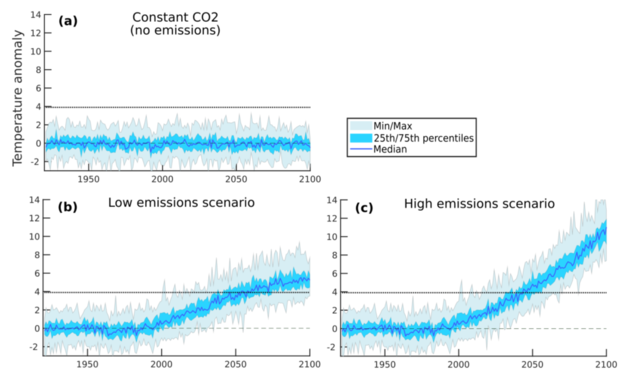Analyses of the Alaskan summer 2019 extreme heat event available
Simulated increases in temperature reflect impacts of different emission scenarios. Credit: doi:10.1029/2021EF002163
An extreme heat event, breaking all previous records, occurred over southwestern Alaska in the summer of 2019. Extreme heat can have significant societal and economic effects, including damaging roads and infrastructure, displacing marine ecosystems, and increasing wildfire risk, with disproportionate costs to Alaska’s rural and indigenous communities. The authors examined the extent to which human-driven climate change played a role in increasing the likelihood of experiencing such an extreme event.
The study finds that the 2019 extreme heat was made up to 6% more likely by the impacts of increasing greenhouse gases. Projections for the rest of the 21st century show that such extreme heat events will become much more likely. The increase in frequency will depend upon future greenhouse gas emissions, but such events may occur on average every other year by the 2060s, even assuming moderate scenarios of future greenhouse gas emissions.
Read more at the link below.
